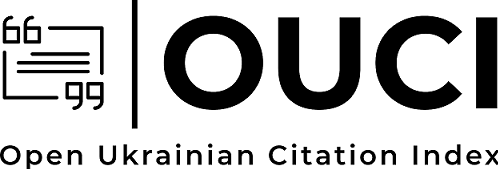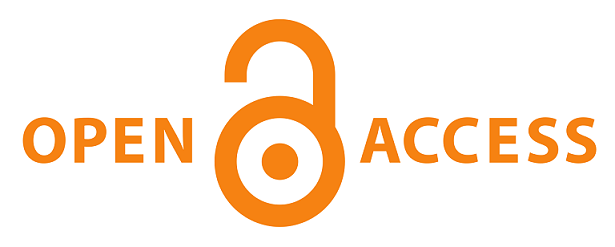The Main Forms of Advanced Training of Soviet Censors in the Second Half of the 1940s (proceeding from the materials of the State Archives of Kirovohrad Oblast)
DOI:
https://doi.org/10.28925/2524-0757.2023.210Keywords:
Soviet censorship, censors, advanced training, Holovlit of the Ukrainian SSR, Kirovohrad ObllitAbstract
The article aims to study the main forms of advanced training of Soviet censors in the second half of the 1940s. The scientific novelty is presented by the fact that the problem has not been studied in Ukrainian historiography in such a statement and within such a chronological framework. The research methodology is grounded on a combination of general scientific (analysis, synthesis, and generalization) and specialhistorical (historical-typological, historical-systemic, and historical-genetic) methods. The research is based on the principles of historicism, systematicity and scientific knowledge. It has been found that professional training of censors was carried out directly at the workplace. Several forms of advanced training were applied in parallel, namely: professional training, seminars, meetings of censorship workers (at regional, republican and all-Union levels) and the party education system. The main forms of control over the level of information assimilation by the censors necessary for the implementation of the tasks set before them by the Soviet authorities have been highlighted and considered. In particular, such forms of control included passing technical minimums and execution of training exercises on knowledge of the “List of information prohibited for publication in the open press”. The analysis of the sources proved that the majority of the censorship employees were self-taught, since no educational institution in the country trained specialists for the needs of Soviet censorship. The lack of experience and practical skills of employees of censorship bodies affected the quality of the censorship system work in general. Therefore, the Holovlit of the Ukrainian SSR controlled the professional training of censors constantly. The regime had to spend a lot of time training all new employees and regularly monitor the performance of the tasks assigned to them. The employees of the censorship bodies systematically raised their ideological and political level because they were to become the conductors of the comprehensive ideological control of the Soviet government and interfere in the creative process, professional activity and private life of citizens.
Downloads
References
Bazhan, M. P. (Ed.). (1977–1985). Ukrainska radianska entsyklopediia: u 12 tomakh [Ukrainian Soviet Encyclopedia: in 12 volumes]. Kyiv: Holov. red. URE [in Ukrainian]. https://leksika.com.ua/13350916/ure/universiteti_marksizmu-leninizmu
Fedotova, O. (2023). Resumption of Activities of the Soviet Censorship Authorities to Control Printed Matter in the USSR in 1943–1945. Vcheni zapysky TNU imeni V. I. Vernadskoho. Seriia: Istorychni nauky, 34(73), 2, 91–98 [in Ukrainian]. https://doi.org/10.32782/2663-5984/2023/2.14
Heneha, R. (2019). The Public Catering System of the Postwar Lviv: Old and new practices. Ukrainskyi istorychnyi zhurnal, 3, 49–73 [in Ukrainian].
Kovpak, L. (2003). Sotsialno-pobutovi umovy zhyttia naselennia Ukrainy v druhii polovyni XX stolittia (1945–2000) [Social and Household Living Conditions of the Population of Ukraine in the 2nd half of the 20th century (1945–2000)]. Kyiv: Instytut istorii Ukrainy NANU [in Ukrainian].
Pozdniakova, I. (2023). Vidnovlennia roboty orhaniv radianskoi tsenzury na prykladi Kirovohradskoho obllitu [Restoring the Work of Soviet Censorship Bodies on the Example of the Kirovohrad Directorate for the Protection of State Secrets in the Press (Kirovohrad obllit)]. (1944)]. Kulturolohichnyi almanakh, 1, 47–54 [in Ukrainian]. https://doi.org/10.31392/cult.alm.2023.1.7
Romanenko, T. (2010). Orhanizatsiino-kadrove zabezpechennia tsenzurnoi diialnosti v URSR pershoi pol. 40-kh pp. XX st. [Organizational and Personnel Provision of Censorship Activities in the Ukrainian SSR in the first half of the 1940s.]. Naukovyi chasopys Natsionalnoho pedahohichnoho universytetu imeni M. P. Drahomanova, Seriia. Istorychni nauky, Vypusk 7, 237–243 [in Ukrainian].
Skvortsova, Ye. (2020). Voina i tseny [War and Prices]. [in Russian]. https://www.if24.ru/vojna-i-tseny
Smilovitskii, L. (2015). Tsenzura v BSSR: poslevoennyie gody, 1944–1945 [Censorship in Postwar Belorussia: 1944–1945]. Jerusalem, Tsur-Or Press [in Russian].
Published
How to Cite
Issue
Section
License
Copyright (c) 2023 Інна Позднякова

This work is licensed under a Creative Commons Attribution-NonCommercial-ShareAlike 4.0 International License.
Authors who publish in this journal retain the right of authorship of the work and give to the journal right of first publication of this work under the conditions of Creative Commons: Attribution-NonCommercial-ShareAlike 4.0 International (CC BY-NC-SA 4.0), which allows others freely distribute the work published with reference to the authors of the original work and the first publication of this magazine.














